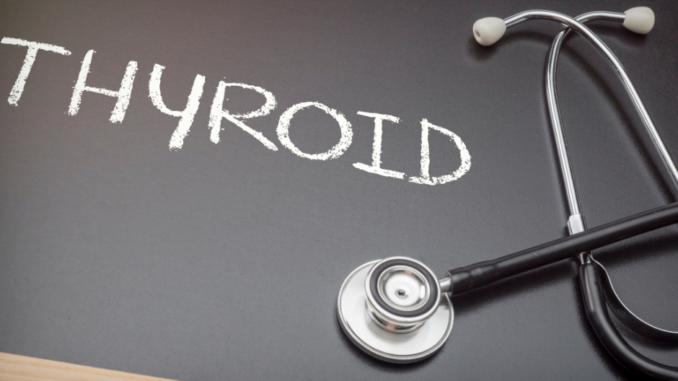
27 Million Americans Suffer From Thyroid Disease…13 Million Remain Undiagnosed
The thyroid gland, a butterfly-shaped gland in the neck, produces hormones that influence almost every organ, tissue, muscle, nerve, and cell in the body. It affects every bodily function by regulating energy and heat production; tissue repair and development; modulating carbohydrates, protein, fat metabolism, and digestion; modulating muscle and nerve action; and helping regulate hormone excretion and oxygen utilization.
Put simply: if your thyroid isn’t functioning properly, you won’t be able to either.
When the American Association of Clinical Endocrinologists (AACE) established new Thyroid Guidelines in 2002, the number of people estimated to be affected by abnormal thyroid function doubled.
According to AACE, the number of people affected by thyroid disease now surpasses the number of people diagnosed with diabetes or heart disease.
Eight percent of patients diagnosed with thyroid disease have hypothyroidism (underactive thyroid). Common symptoms are fatigues, depression, forgetfulness, dry/coarse hair, loss of eyebrows, puffy face and eyes, goiter, dry skin, cold intolerance, weight gain, heavy menstrual periods, constipation, and brittle nails.
The most common therapy for hypothyroidism incorporates inexpensive commercial or compounded thyroid prescriptions to restore function. College Pharmacy is able to compound thyroid treatments to virtually any specification in strengths tailored to each individual patient. In addition, we stock almost all commercially available thyroid medications.
Patients with an overactive thyroid are diagnosed with hyperthyroidism. Common symptoms are bulging eyes, unblinking stare, goiter, rapid heartbeat, increased sweating, unexplained weight loss, and frequent bowel movements. Treatment of hyperthyroidism is somewhat limited and should be thoroughly discussed with a healthcare practitioner.
There are many over-the-counter supplements available to help support your thyroid. Make sure to talk to your healthcare practitioner or a pharmacist before incorporating thyroid support supplements into your diet.
If you suspect that you may have a thyroid disorder, would like to learn more about thyroid health, or need a healthcare practitioner referral, visit https://www.webmd.com/women/guide/understanding-thyroid-problems-basics#1
